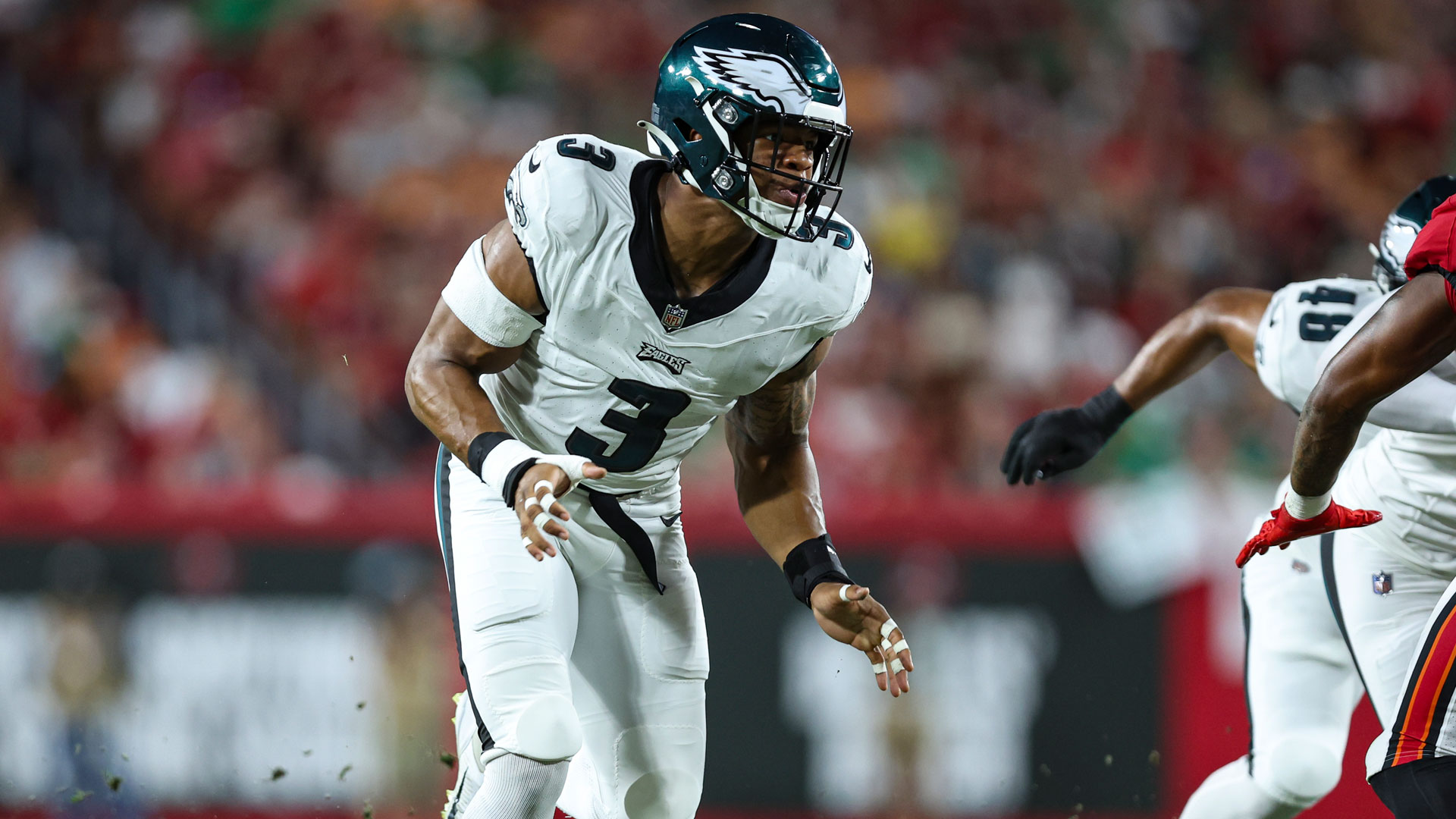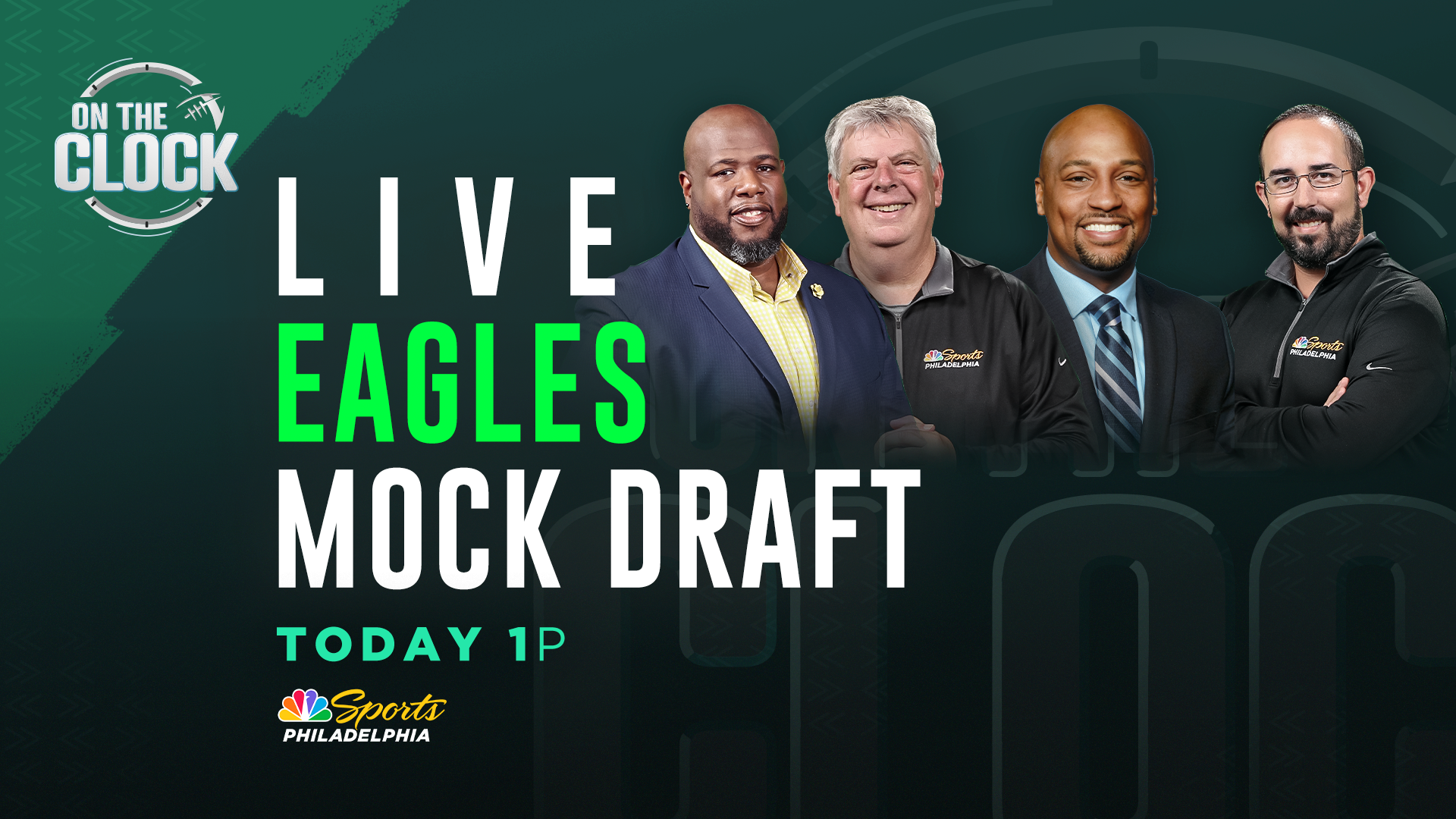By now you’ve heard about the Eagles’ precarious salary cap situation in 2021. With the start of the new league year less than one month away, the Eagles have some work to do.
The NFL salary cap in 2020 was nearly $200 million and NFL teams had been preparing for that to rise another $10+ million but then a global pandemic hit and torpedoed revenues.
So last year, the NFL and NFLPA set a salary cap floor of $175 million for the 2021 season. The new cap floor is reportedly $180 million and it could still end up higher, according to multiple reports.
Stay in the game with the latest updates on your beloved Philadelphia sports teams! Sign up here for our All Access Daily newsletter.
The folks at OverTheCap have their projections set at $180 million, so we’ll use that for now. Based on that number and the carryover total from the 2020 season, OTC projects the Eagles to be $49 million over the cap. Not great.
But also not the worst situation in the league (the Saints are nearly $70 million over) and the Eagles have been preparing for this. There are several moves they will definitely make and even more possible ones they might make to become cap compliant when the new league year kicks off on March 17. Keep in mind that when a player comes off the books, they get replaced by another player in the top 51 contracts, which count in the offseason. So whatever cap savings the Eagles get by cutting a player, the 52nd contract replaces it, which means slightly less savings.
Let’s take a look:
Cut Alshon Jeffery
NFL
The Eagles already did the heavy lifting with Jeffery and Malik Jackson, who will get cut immediately after the new league year begins. Basically, the Eagles are planning to utilize their two post-June 1 cut designations on Jeffery and Jackson, which prevents future bonus money from accelerating to the cap when the players are cut; that’s what usually happens. The problem with post-June 1 cuts is that the team has to carry those full cap figures through June 1 and that doesn’t help the Eagles now (Jeffery was around $18M and Jackson was around $13M). So they found an inventive workaround.
In this case, the Eagles restructured the contracts of Jeffery and Jackson, lowering their base salaries to $2 million each and making it possible to get instant cap relief but also still using that post-June 1 cut to maximize that relief. Why would Jeffery or Jackson agree to this? Because it pretty much guarantees that the Eagles will be forced to release them sooner, which will let those players try to find new homes earlier.
In Jeffery’s case, they lowered his base salary from $12.75 million to $2 million, which lowered his cap hit from nearly $18.4 million to $7.6 million (a savings of $10.8M), according to a league source.
To guarantee the Eagles either give him a different contract or release him, Jeffery’s contract includes a $25 million guaranteed base salary for 2022 if he’s on the roster on the second day of the 2021 league year. So they’re obviously going to cut him. When they do, they’ll likely do it with a post-June 1 designation, which will eventually save them another $2 million or so in cap space.
Cut Malik Jackson
The Eagles did something very similar with Jackson’s contract. They lowered his 2021 base salary from $9 million to $2 million, which took his cap hit from $13.6 million to $5.6 million, according to a league source. The Eagles will use their other post-June 1 designation on Jackson.
The Eagles also wrote into his contract a $25 million guaranteed base salary in 2022 if he’s on the roster in the second day of the 2021 league year, which means he’s getting cut on March 17 too. Howie better not forget to file the paperwork.
The Eagles will have cap charges associated with Jeffery and Jackson in 2022, but hopefully by then the league-wide cap will have ballooned back to normal heights again.
Find a resolution with Derek Barnett
Right now, Derek Barnett is scheduled to play the 2021 season on the fifth-year option of his rookie contract, which comes with a base salary of just north of $10 million and a cap charge to match. While the Eagles bit the bullet and paid Nelson Agholor the fifth-year option price a couple years ago, it’s hard to imagine them making that mistake again.
They really have two options in the case of Barnett:
1. Cut him and move on. The fifth-year option base salary is not guaranteed until the first day of the new league year … March 17. So if the Eagles decide it’s best to move on, there’s around $10 mil in space right there.
2. They can reach some sort of new deal with Barnett before the new league year starts. If Barnett wants to stay and the Eagles want to keep him, they can work out a deal. Basically any type of agreement would significantly lower his cap hit in 2021.
Cut DeSean Jackson
The aging speed receiver has a cap hit of $10.7 million in 2021 and the Eagles would save nearly $5 million by releasing him. To me, this is a no-brainer. It’s time to move on.
Cut Marquise Goodwin
There was a report last offseason that the Eagles and Goodwin had agreed to a contract restructure but then Goodwin opted out of the 2020 season and his original contract is the one that tolled, according to a source. The Eagles can save $4.2 million (his entire cap hit) by releasing him. That’s wise.
Trade/cut Zach Ertz
If the Eagles cut or trade Ertz, they will save $4.7 million in cap space. I don’t think the market is especially strong for Ertz right now. He’s an aging player with a base salary of $8.25 million in 2021 and he wants a new contract. The Eagles don’t don’t have much leverage but if they get back a Day 3 pick, that’s better than nothing.
Trade Carson Wentz
To be clear, this would be a very minimal savings. If he’s on the Eagles’ roster in 2021, Wentz’s cap hit is $34,673,536. If they trade him, his cap hit is $33,820,608. So we’re talking about less than $1 million in savings. But it still seems like this is likely for many other reasons.
Restructure Fletcher Cox
Aside from Wentz, the largest cap hit on the team in 2021 belongs to Cox at $23.9 million. Cox is 30 now but he’s still playing at a Pro Bowl level and is under contract through just the 2022 season. The Eagles could offer him an extension on that contract to spread out that hit. Or they could simply offer him a lump sum in a signing bonus to reduce his base salary, add one more dummy year to the contract and spread out that hit over the length of five seasons to lower his cap hit in 2021.
Jason Kelce retires
This one is truly out of the Eagles’ hands, but based on his comments on the Green Light podcast, Kelce is still at least contemplating retirement.
If Kelce were to retire now, the prorated portions of his signing bonuses would accelerate, leaving $10.1 million in dead money, which would be an expensive charge, especially considering that his cap hit in 2021 is just $8.4 million. So if Kelce wants to retire, the Eagles could probably work out a deal like the Saints pulled off with Drew Brees. They could lower his base salary of $5.5 to the minimum ($1.075M) and Kelce could wait until after June 1 to file his papers, which would spread that bonus money (dead money) over the remaining three years of his contract. TLDR: The Eagles could save $4.4 million in cap space now and another million after June 1.
Trade Darius Slay (or another vet)
I’m not saying this is likely but want to point it out as a possibility. Given their situation, the Eagles don’t really have any untouchable players when it comes to trades. Slay was good in 2020 but he wasn’t great and he’s 30 now with a big contract. Slay has a cap hit of $15.75 million in 2020 and the Eagles would save $6 million in cap space by trading him (but it would leave nearly $10 million in dead money).
Subscribe to the Eagle Eye podcast:
Apple Podcasts | Google Play | Spotify | Stitcher | Art19 | Watch on YouTube


